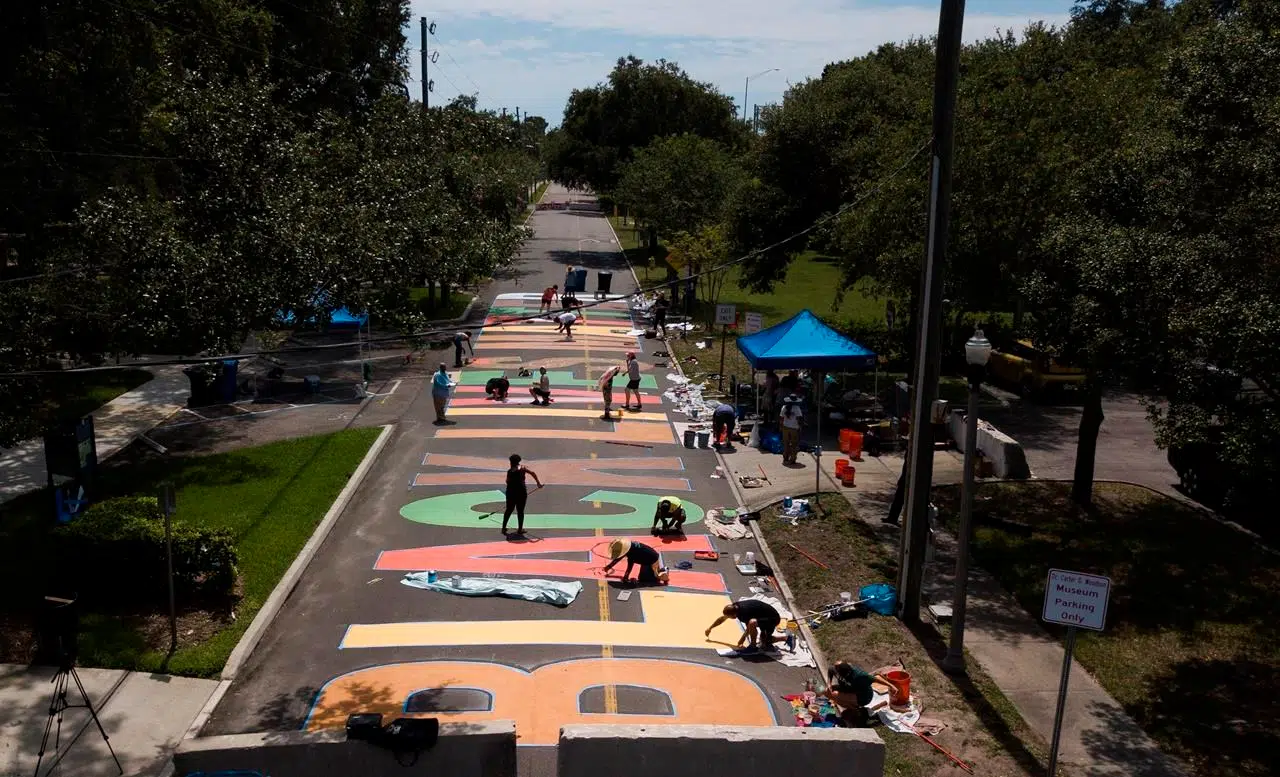TULSA, Okla. — Black Americans are gathering today to mark the anniversary of an emancipation that came two and a half years late — liberty that many say feels like it never came at all.
It’s been 155 years since slaves in Texas learned of their freedom on June 19, 1865, nearly 30 months after Abraham Lincoln issued his famous Emancipation Proclamation on Jan. 1, 1863.
In 2020, as protests against racially motivated police brutality continue in cities and towns across the U.S., Black activists say Juneteenth will be even more bittersweet.
“Freedom still really hasn’t come,” said Quraysh Ali Lansana, a poet and teaching artist at the Tulsa campus of Oklahoma State University.
“It was late in 1865, and it’s late in 2020. So we need to celebrate and acknowledge that we are still here, but we also know … that our freedom really still hasn’t arrived, and we still have to be fighting and working toward that every day.”
That’s especially true in Tulsa, the scene of a race riot in 1921 that many historians consider the single worst incident of racial violence in American history.
The Tulsa massacre erupted over Memorial Day weekend when a Black man was accused of assaulting a white woman in the city’s Greenwood district, also known as Black Wall Street. In the ensuing mayhem, 12 people were killed and a mob of white rioters laid waste to the neighbourhood, looting shops and setting fire to homes.
For Lansana, who is also executive producer of a public radio program called “Focus: Black Oklahoma,” Juneteenth serves as a reminder that Black history in the United States is inextricably bound to the actions of the white establishment and the systemic racism that has been prevalent for more than 400 years.
He cites the words of Clara Luper, a noted civil rights leader in Oklahoma who died in 2018, who once described her role as making white people understand that “black history is white history. We cannot separate the two.”
“There would have been no Tulsa race massacre if white folks hadn’t blown it up. Our histories are intertwined,” he said.
“There would not have been a Black Wall Street — or Greenwood district, which was for a time, the most thriving, economically independent Black community in the world — if it weren’t for segregation, if it weren’t for Jim Crow laws.”
Adding fuel to the fire this weekend will be President Donald Trump, who has chosen Tulsa to relaunch his presidential re-election campaign after dominating Oklahoma in the 2016 election with more than 65 per cent of the vote.
Trump’s “Keep America Great” rally was originally scheduled to take place today, but it was later rescheduled for Saturday —a controversy the president credits for making what he calls an otherwise unknown holiday “very famous.”
Lansana said he’s bracing for clashes between Trump supporters, many of whom began camping outside the downtown venue earlier this week, and ongoing Black Lives Matter protests which are expected to take place nearby.
“There’s not enough land mass to separate these two constituencies, and so there will be conflict. I hate to say it, but I’m pretty sure that’s what’s going to happen.”
This report by The Canadian Press was first published June 19, 2020.
— Follow James McCarten on Twitter @CdnPressStyle
James McCarten, The Canadian Press







